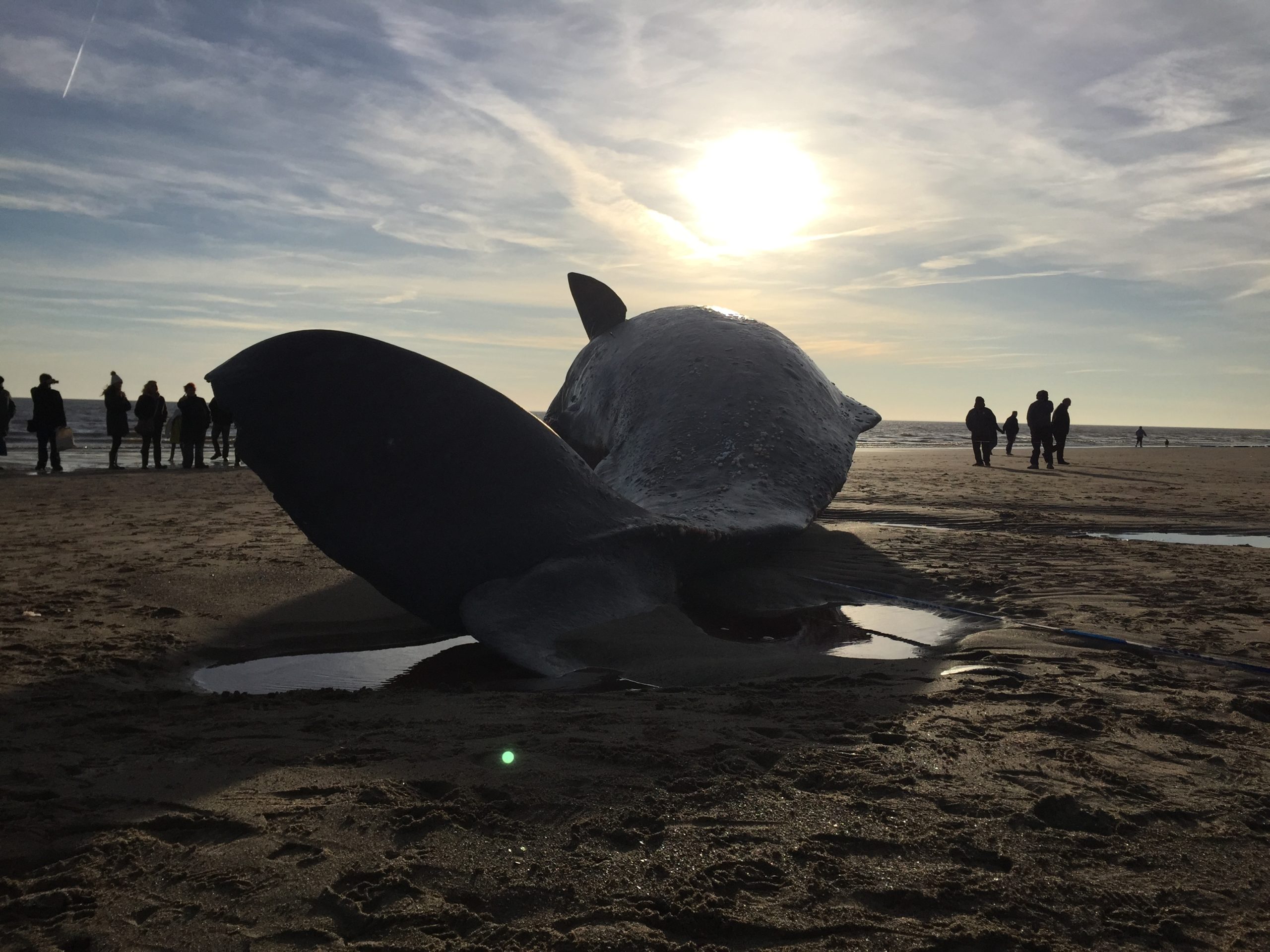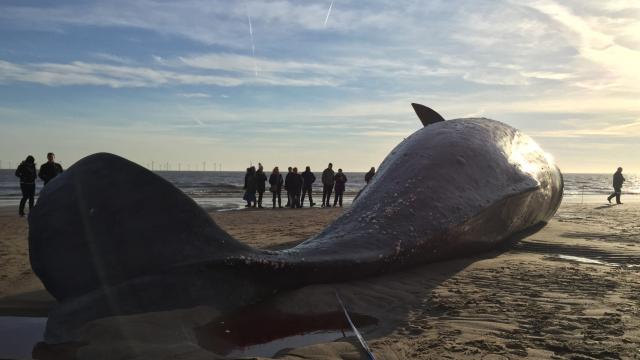Last month, quite beachfront communities on both sides of the North Sea were rocked by the sight of sperm whales washing up dead on their shores. It was one of the largest strandings in recent history — but according to marine biologists, there may be an upside.
“For individual animals, this is certainly a bad thing,” Paul Jepson of the Cetacean Strandings Investigation Programme at the Zoological Society of London told Gizmodo. “But when we get more strandings, that tends to correlate with population recovery.”
Jepson is one of the pathologists leading the investigation into the deaths of five juvenile male sperm whales that washed up recently on beaches in eastern England. A rare and dramatic event, whale strandings always attract local attention. This one, however, garnered international notice, because it followed on heels of a dozen sperm whale strandings on German and Dutch Islands across the North Sea.
But despite concerns that there may be some sinister factor behind the deaths — a new disease, or a chemical pollutant — all of the investigations are coming to a rather simple conclusion: the North Sea is a sperm whale death trap.
Sperm whales are deep diving animals, normally feeding on squid and other large prey at 1,000 meters or more below the surface. The North Sea, which has a maximum depth of about 200 meters, confuses the animals’ biological sonar. “They’re very elegant in deep water, but large and cumbersome and struggle to navigate shallow waters,” Jepson said. “Not only that, but they can’t find deep sea squid, and can eventually end up starving.”

One of the juvenile male sperm whales that washed up on the shore of eastern England last month.
Why these whales entered the North Sea’s shallow waters, and whether all the strandings are connected, is unclear, and Jepson is doubtful that his team’s post-mortem is going to offer answers. “As pathologists, we can only see the end stage when these animals have died, and there’s no test we can do to tell us why they entered the North Sea in the first place,” he said.
But events like this are not all doom and gloom. In fact, they can be a strong indicator that whale populations are recovering.
“Throughout the 1990s, we never had a humpback whale stranding,” Jepson said. “But in the 2000s, these started to become a regular event. And this correlates with the North Atlantic population, which came back after the 1986 moratorium on whaling.”
That international whaling moratorium, Jepson said, has also been a boon for sperm whales, whose numbers were decimated by commercial whaling in the early 20th century. But sperm whales are slow-growing, slow-reproducing animals that don’t come to the surface often, and signs of population recovery have been limited.
Not only does the recent stranding give biologists hope that sperm whales are indeed making a comeback, it raises public interest in marine conservation.
“It’s amazing how many people come out to see these animals — whether they’re alive or dead,” Jepson said. “It helps us get our message across about the threats they face, and which are recovering.”
Images via ZSL CSIP
